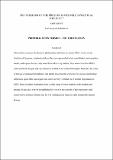Files in this item
The freedom of the press in James Mill's political thought
Item metadata
| dc.contributor.author | Grint, Kris | |
| dc.date.accessioned | 2016-04-01T09:30:04Z | |
| dc.date.available | 2016-04-01T09:30:04Z | |
| dc.date.issued | 2017-06 | |
| dc.identifier | 241610128 | |
| dc.identifier | d4f94421-d6c9-42bd-9a50-ba1aa74955d4 | |
| dc.identifier | 84987668875 | |
| dc.identifier | 000400970400005 | |
| dc.identifier.citation | Grint , K 2017 , ' The freedom of the press in James Mill's political thought ' , The Historical Journal , vol. 60 , no. 2 , pp. 363-383 . https://doi.org/10.1017/S0018246X16000224 | en |
| dc.identifier.issn | 0018-246X | |
| dc.identifier.uri | https://hdl.handle.net/10023/8533 | |
| dc.description.abstract | This article examines the Scottish philosopher and historian James Mill’s views on the freedom of the press, predominantly as they are expounded in his unpublished commonplace books, and argues that not only were these ideas very radical, they were critical to Mill’s wider political thought and, by extension, to that of the early Philosophic Radicals. By virtue of the use of manuscript material, this article also presents evidence for various intellectual influences upon Mill, and argues that whilst Jeremy Bentham is of central importance to Mill’s ideas, he takes inspiration from a wide range of other authors, both modern and ancient, in part as a way of normalizing his views in the context of the reactionary and conservative political climate that he was writing about them in: early nineteenth-century Britain. | |
| dc.format.extent | 258653 | |
| dc.language.iso | eng | |
| dc.relation.ispartof | The Historical Journal | en |
| dc.subject | B Philosophy (General) | en |
| dc.subject | T-NDAS | en |
| dc.subject.lcc | B1 | en |
| dc.title | The freedom of the press in James Mill's political thought | en |
| dc.type | Journal article | en |
| dc.contributor.institution | University of St Andrews. School of History | en |
| dc.identifier.doi | https://doi.org/10.1017/S0018246X16000224 | |
| dc.description.status | Peer reviewed | en |
This item appears in the following Collection(s)
Items in the St Andrews Research Repository are protected by copyright, with all rights reserved, unless otherwise indicated.

